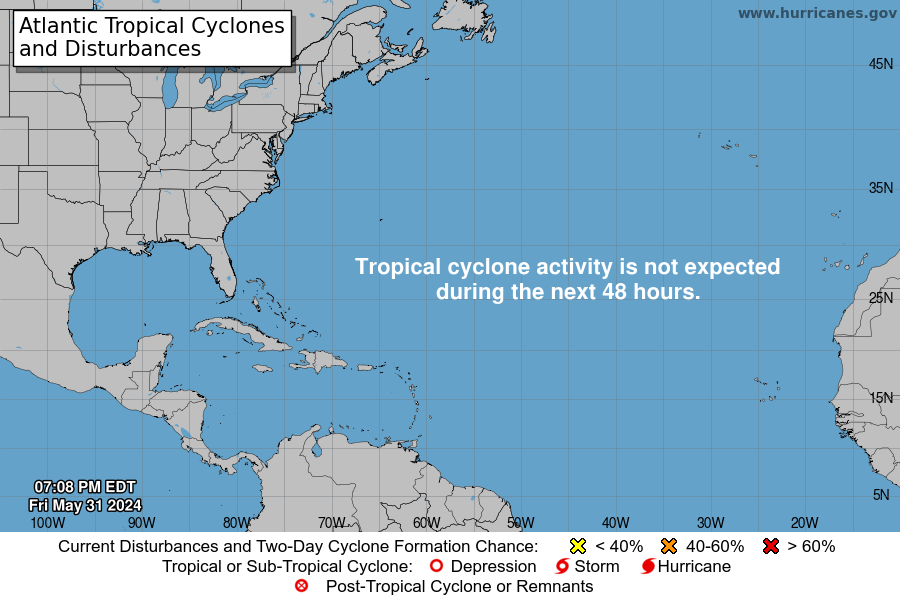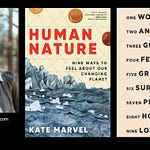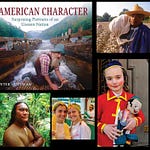June 1 is the official start of hurricane season in the Atlantic, Caribbean and Gulf of Mexico and, unless you’ve been offline for weeks, you already know the National Oceanic and Atmospheric Administration and several academic and private forecasting outfits predict this’ll be an intense five months because of record hot sea surface temperatures and the very likely late summer return of La Nina conditions.
To stay safe along coasts or in floodable inland areas as the season heats up, you should of course bookmark NOAA’s National Hurricane Center tracking and warning site. Don’t get too used to the storm-free image on the site at the moment:
To stay sane as the media environment around hurricanes and climate change heats up, you should bookmark NOAA’s Global Warming and Hurricanes page, curated for many years by senior scientist Tom Knutson.
Knutson is one of the most level-headed and objective scientists I know in a research arena full of competitive groups, data gaps and intense debates. It’s also an arena being flooded with money as the insurance industry and businesses needing to demonstrate or measure environmental responsibility (e.g. S&P Global) hire climate scientists and invest in modeling.
I’ve been interviewing and citing Knutson for more than 20 years and thought this week was a good time to catch up with him to go over what’s well established about the influence of warming from rising carbon dioxide concentrations on tropical storm behavior and what remains obscured by natural variability and the rarity of the biggest storms. Watch or listen above or on the audio podcast or watch and share our chat on YouTube, Facebook or LinkedIn.
We talk about the “Category 6” question, the continued disagreement among researchers over the relative influences on Atlantic tropical storms of hazy air pollution and slowly shifting ocean currents and more.
There’s a super-rough Trint transcript here (they tend to be better than the one that Substack generates, at least for now). If more subscribers find it possible to chip in financially, I can get these cleaned up (and make lots of other improvements).
You may also want to click back to an evergreen interview I did around the 30th anniversary of Hurricane Andrew’s devastating hit on South Florida with the University of Miami hurricane scientist Brian McNoldy - whose Tropical Atlantic Update blog and @BMcNoldy X/Twitter feed are invaluable.
















Share this post